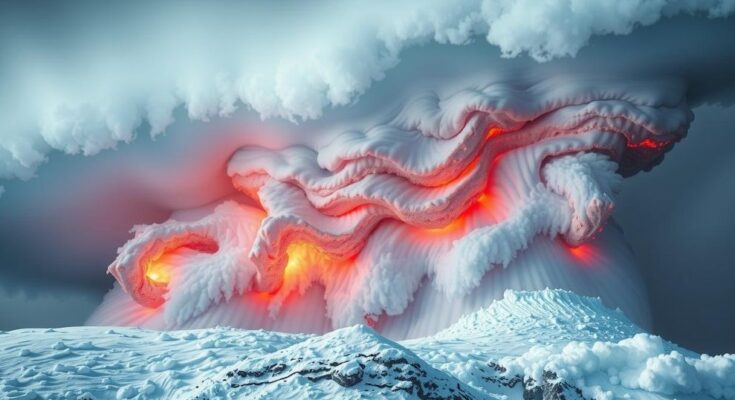The onset of 2025 has seen extreme weather events in the U.S., including destructive winds and record temperatures. Climate scientists now have new methods to link individual weather occurrences to human-induced climate change, previously considered less feasible. As global temperatures gradually rise, the climate evolves, affecting weather patterns, with significant implications for health, safety, and the environment.
The onset of 2025 has been marked by a series of severe weather phenomena across the United States, including extreme winds in Southern California and record-breaking wildfires, as well as significant winter storms affecting large regions like the Mid-Atlantic and South. Amid this unpredictable weather, researchers confirm that 2024 was the hottest year recorded, primarily driven by climate change induced by human activities. In the past decade, advancements in climate science enable the correlation between specific weather events and climate change, demonstrating that while not every fluctuation can be attributed to these changes, many extreme weather instances now appear to be influenced by the rising global temperatures.
The distinction between climate and weather is often illustrated by the saying: “climate is what you plan for and weather is what you get.” For instance, climate scientists describe climate as the clothing one keeps in their closet, suggesting that while the climate informs what to expect in general, actual weather conditions can vary widely. Scientists average weather patterns over a 30-year period to define climate, indicating that anomalous weather does occur but may not significantly alter long-term climate assessments.
The continuous rise in Earth’s temperature, approximately 1.3 degrees Celsius since the mid-1800s, largely due to fossil fuel consumption, has gradual but essential impacts on daily weather patterns. While subtle in manifestation, this planet-wide warming likely affects weather consistently. For example, states in the U.S. are now experiencing considerably fewer freezing days compared to a climate-unimpacted scenario, and heat waves have markedly intensified over recent decades.
Climate change is also responsible for transforming intricate atmospheric and oceanic dynamics, giving rise to unprecedented weather events. A notable example is the deadly heat wave experienced in the Pacific Northwest in 2021, which was not only exacerbated by climate change but also facilitated by atmospheric conditions that were historically atypical for that region.
Scientific methods such as detection and attribution have been established to assess human influence on weather events methodically. These methodologies leverage climate models to simulate potential climates absent the effects of fossil fuel emissions, enabling researchers to evaluate the degree to which climate change has altered the occurrence and intensity of weather phenomena. For instance, it was determined that Hurricane Helene’s rainfall intensity was ten percent greater because of climate change, and the storm was forty percent more likely to occur as a result.
The correlation between climate change and extreme weather events signifies an urgent imperative for the global community to address and mitigate human impact on the environment. Stakeholders must prioritize climate action and work towards innovative solutions to avert further risks posed by this evolving climate crisis.
The article discusses recent intense weather events occurring in early 2025 and their potential links to human-induced climate change. It highlights advances in climate science that allow researchers to connect specific weather patterns to climate factors, a shift from previous understandings that were more cautious in directly attributing individual events to climate change. The piece also clarifies the difference between climate and weather, illustrating how an understanding of these definitions aids in contextualizing the impacts of climate change. Finally, it details scientific methodologies for comprehending and quantifying human influence on weather patterns and extreme events.
In conclusion, the evidence increasingly supports that human-induced climate change is a significant factor in many extreme weather events observed today. While not all weather fluctuations are directly caused by climate change, a substantial number of severe phenomena have demonstrated clear ties to rising global temperatures. By utilizing advanced scientific methods to analyze the influence of climate change, experts are better equipped to predict future weather patterns and inform climate action strategies. The pressing need to address climate change reflects the serious implications it poses for our environment and society at large.
Original Source: www.knba.org




